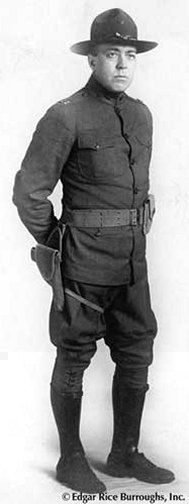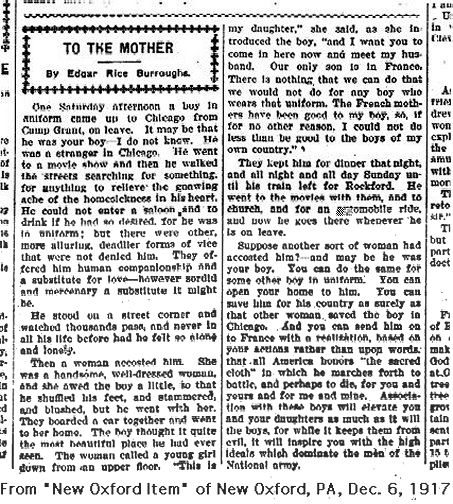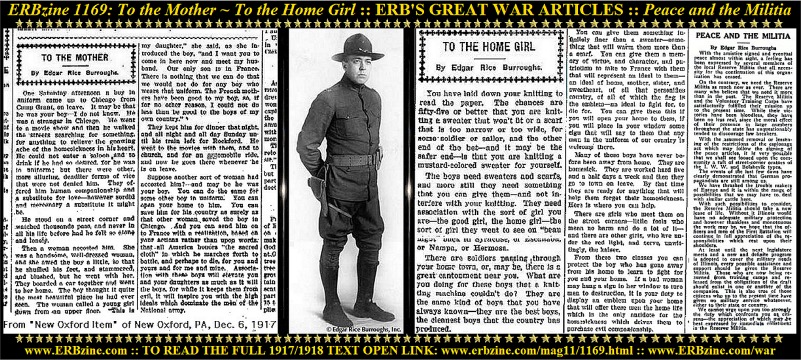TO THE HOME GIRL
by Edgar Rice Burroughs
From The Van Nuys News ~ Van Nuys ~ California
January 18, 1918
You have laid down your knitting to read the paper. The
chances are fifty-five or better that you are knitting a sweater that won't
fit or a scarf that is too narrow or too wide, for some soldier or sailor,
and the other end of the bet and it may be the safer end is that you
are knitting a mustard-colored sweater for yourself.
The boys need sweaters and scarfs, and more still they
need something that you can give them and not interfere with your knitting.
They need association with the sort of girl you are the good girl, the
home girl the sort of girl they went to see on "beau night back in Syracuse,
or Escanaba, or Nampa, or Hermosa.
There are soldiers passing through your home town, or,
may be, there is a great cantonment near you. What are yon doing for these
boys that a knitting machine couldn't do? They are the same kind of boys
that you have always known they are the best boys, the cleanest boys
that the country has produced.
You can give them something Infinitely finer than a sweater
something that will warm them more than a scarf. You can give them
a memory of virtue, and character, and patriotism to take to France with
them that will represent an ideal to them an ideal of home, mother, sister,
and sweetheart, of all that personifies country, of all of which the flag
is the emblem an ideal to fight for, to die for. You can give them this
if you will open your home to them, if you will place in your window some
sign that will say to them that any man in the uniform of our country is
welcome there.
Many of these boys have never before been away from home.
They are homesick. They are worked hard five and a half days a week and
then they go to town on leave. By that time they are ready for anything
that will help them forget their homesickness. Here is where you can help.
There are girls who meet them on the street corners
little fools who mean no harm and do a lot of it and there are other
girls, who live under the red light, and serve, unwittingly, the kaiser.
From these two classes you can protect the boy who has
gone away from his home to learn to fight for you and your home. If a bad
woman may hang a sign in her window to lure men to destruction, it is your
duty to display an emblem upon your home that will offer these men the
home life which is the only antidote for the homesickness which drives
them to purchase evil companionship.
Submitted by David Sorochty
|





![]()
![]()
![]()
![]()

![]()